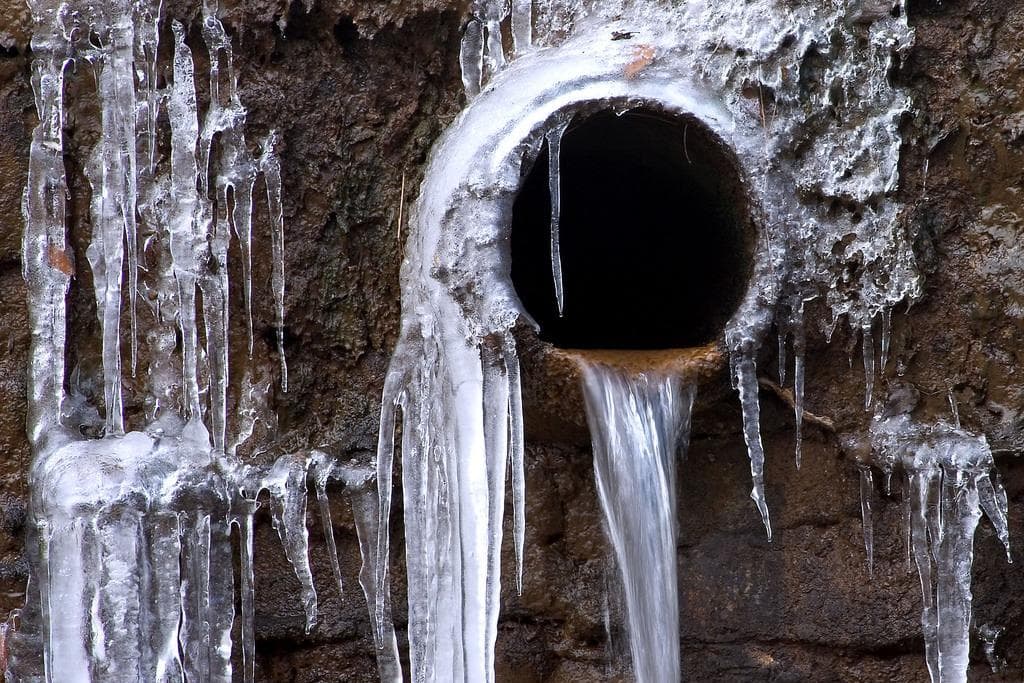Safeguarding Pipes from Freezing Issues: Key Approaches
Safeguarding Pipes from Freezing Issues: Key Approaches
Blog Article
They are making a number of good annotation regarding How To Avoid Freezing Pipes as a whole in the content down below.

Winter can damage your plumbing, particularly by freezing pipelines. Right here's exactly how to prevent it from taking place and what to do if it does.
Intro
As temperatures decline, the danger of frozen pipelines boosts, possibly causing expensive repairs and water damages. Understanding just how to prevent icy pipes is vital for property owners in cool climates.
Avoidance Tips
Insulating susceptible pipelines
Wrap pipes in insulation sleeves or make use of heat tape to safeguard them from freezing temperature levels. Concentrate on pipes in unheated or outside locations of the home.
Heating strategies
Keep indoor rooms properly warmed, particularly areas with plumbing. Open cabinet doors to permit warm air to flow around pipelines under sinks.
Just how to determine icy pipelines
Search for decreased water circulation from faucets, uncommon smells or noises from pipes, and noticeable frost on revealed pipelines.
Long-Term Solutions
Structural modifications
Take into consideration rerouting pipelines far from outside wall surfaces or unheated locations. Include extra insulation to attics, basements, and crawl spaces.
Upgrading insulation
Invest in premium insulation for pipes, attics, and walls. Proper insulation helps keep regular temperature levels and minimizes the danger of frozen pipes.
Protecting Exterior Pipes
Garden hoses and exterior faucets
Disconnect and drain pipes garden hoses prior to wintertime. Install frost-proof faucets or cover outside taps with insulated caps.
Comprehending Icy Pipelines
What causes pipes to ice up?
Pipelines ice up when exposed to temperatures below 32 ° F (0 ° C) for prolonged durations. As water inside the pipelines ices up, it expands, taxing the pipe wall surfaces and possibly triggering them to break.
Threats and problems
Icy pipes can cause water supply interruptions, home damage, and pricey repairs. Ruptured pipes can flooding homes and cause considerable architectural damages.
Signs of Frozen Pipes
Identifying frozen pipelines early can stop them from breaking.
What to Do If Your Pipelines Freeze
Immediate actions to take
If you think frozen pipes, maintain taps available to ease pressure as the ice thaws. Make use of a hairdryer or towels soaked in hot water to thaw pipelines slowly.
Conclusion
Protecting against icy pipes calls for positive measures and fast reactions. By recognizing the causes, indicators, and preventive measures, homeowners can secure their plumbing during winter.
Helpful Tips to Prevent Frozen Pipes this Winter
UNDERSTANDING THE BASICS: WHY PIPES FREEZE AND WHY IT’S A PROBLEM
Water freezing inside pipes is common during the winter months, but understanding why pipes freeze, and the potential problems it can cause is crucial in preventing such incidents. This section will delve into the basics of why pipes freeze and the associated problems that may arise.
THE SCIENCE BEHIND FROZEN PIPES
When water reaches freezing temperatures, it undergoes a physical transformation and solidifies into ice. This expansion of water as it freezes is the primary reason pipes can burst. As the water inside the pipe freezes, it expands, creating immense pressure on the walls. If the pressure becomes too great, the pipe can crack or rupture, leading to leaks and water damage.
FACTORS THAT CONTRIBUTE TO PIPE FREEZING
Low Temperatures: Extremely cold weather, especially below freezing, increases the risk of pipes freezing. Uninsulated or Poorly Insulated Pipes: Pipes located in unheated areas, such as basements, crawl spaces, or attics, are more prone to freezing. Insufficient insulation or lack of insulation altogether exacerbates the problem. Exterior Wall Exposure: Pipes running along exterior walls are susceptible to freezing as they encounter colder temperatures outside. Lack of Heating or Temperature Regulation: Inadequate heating or inconsistent temperature control in your home can contribute to frozen pipes. PROBLEMS CAUSED BY FROZEN PIPES
- Pipe Bursting: As mentioned earlier, the expansion of water as it freezes can cause pipes to burst, resulting in significant water damage.
- Water Damage: When pipes burst, it can lead to flooding and water damage to your property, including walls, ceilings, flooring, and personal belongings.
- Structural Damage: Prolonged exposure to water from burst pipes can compromise the structural integrity of your home, leading to costly repairs.
- Mold and Mildew Growth: Excess moisture from water damage can create a favorable environment for mold and mildew growth, posing health risks to occupants.
- Disrupted Water Supply: Frozen pipes can also result in a complete or partial loss of water supply until the issue is resolved.
WHY CERTAIN PIPES ARE MORE PRONE TO FREEZING
- Location: Pipes located in unheated or poorly insulated areas, such as basements, crawl spaces, attics, or exterior walls, are at higher risk of freezing.
- Exterior Pipes: Outdoor pipes, such as those used for irrigation or exposed plumbing, are particularly vulnerable to freezing as they are directly exposed to the elements.
- Supply Lines: Pipes that carry water from the main water supply into your home, including the main water line, are critical to protect as freezing in these lines can affect your entire plumbing system.
- Underground Pipes: Pipes buried underground, such as those connected to sprinkler systems or outdoor faucets, can be susceptible to freezing if not properly insulated.
https://busybusy.com/blog/helpful-tips-to-prevent-frozen-pipes-this-winter/

I stumbled upon that blog posting on How to prepare your home plumbing for winter weather while looking around the internet. Are you aware of anybody else who is excited about the topic? Take a moment to promote it. We love reading our article about How to Prevent Your Pipes From Freezing.
Book Service Now Report this page